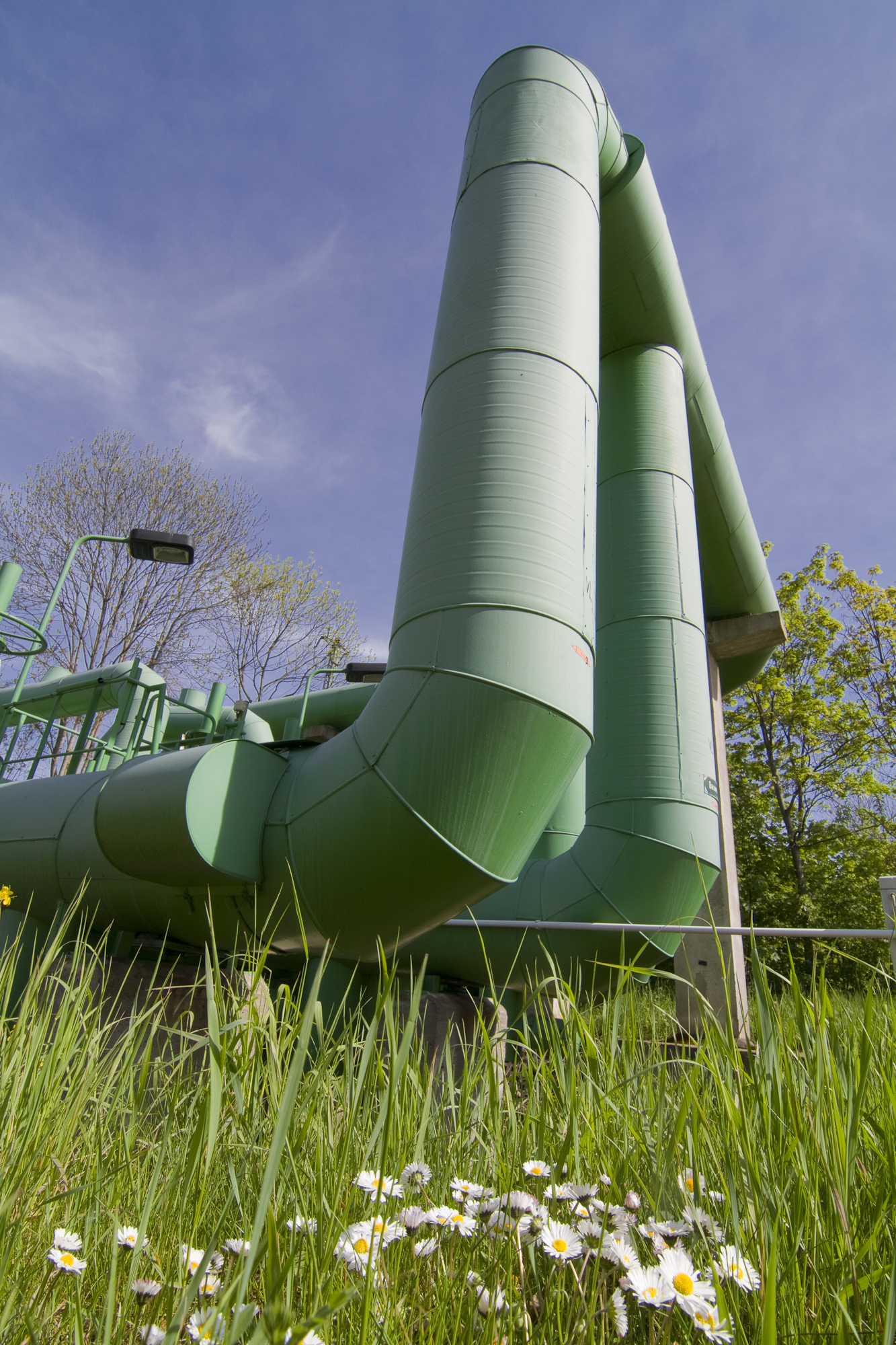The future of district heating is based on an intelligent combination of conventional energy and heat generation, renewable energies and innovative technologies
Leipziger Stadtwerke: SPARCS Subtask in “Leipzig West” proceeding to schedule
The development of energy-positive apartment buildings is one of the work packages of the SPARCS project under the direction of Leipziger Stadtwerke. Alongside other activities, this subproject of four work packages is examining how CO2-free district heating could be implemented in “Leipzig West”. The initial milestones were achieved in the first year of the project.
Work package for the construction of a solar thermal plant: Planning for the solar thermal plant is proceeding apace
The plans revolve around the integration of a solar thermal plant into the local district heating network to serve as a supply of CO2-neutral heat. The preparatory planning is already completed. Negotiations regarding the required space are nearing finalisation and the final contracts are expected to be signed in December 2020. The necessary tenders and approval procedures are also underway. Detailed technical planning will begin as soon as the anticipated approval of a federal grant has been received. A decision is awaited for early 2022, which will allow construction work to begin in the same year. The current focus is on network planning. Here, the Leipziger Stadtwerke is examining how weather-related fluctuations could impact the district heating network in the case of integration of solar thermal energy.
Work package: Examination of the potential of a district heating solution based on a heating concept for the Duncker Neighbourhood (Dunckerviertel); derivations regarding the replication potential to other urban districts
Here, the Leipziger Stadtwerke together with WSL Wohnen and Service Leipzig GmbH undertook an extensive survey in the demo district of Duncker Neighbourhood in Leipzig Neulindenau. The detailed data that was collected included peak loads, temperature levels and heat requirements, as well as energy sources, types of heat generation, metering methods and the condition of existing building technology. In the next step, this data will be used to evaluate various concept alternatives and will assist in the implementation of a model simulation. The analysis and evaluation of these will indicate, among other things, whether and to what extent it will be possible to replicate the developed concepts to other districts in Leipzig.
Work package: Development of models and scenarios to increase the share of renewable energies in the district heating network
In parallel with the collection of up-to-date data on district heating in the Duncker Neighbourhood, the Leipziger Stadtwerke together with the University of Leipzig conducted a series of workshops on target specification, scope definition and the implementation of the simulation model. The various scenarios for evaluation are currently being defined. Further workshops for the derivation of possible scenarios for post-fossil district heating supply are in preparation.
Work package: Commencement of identification and assessment of surplus heat potential within city boundaries for integration into the central district heating network
The concept for the localisation of inner-city waste heat sources, e. g. data centres, foundries and laundry facilities, is currently in preparation. The Leipziger Stadtwerke is initially determining the relevant data through higher-level points of contact, including company lists from the local Chamber of Commerce and Industry, which has compiled lists of companies that potentially produce waste heat. The Leipziger Stadtwerke is currently evaluating expanded collection methodologies for determining the potential of suitable and utilisable waste heat from intraurban companies. At this time, around 80 potential waste heat locations have already been documented; these are being assessed with regard to their suitability for district heating applications.
Alongside, Leipziger Stadtwerke and cenero ENERGY GmbH are working to drive forward bidirectional charging at the Leipziger Baumwollspinnerei industrial site and are developing a joint SPARCS APP in collaboration with a large number of other partners. Leipziger Stadtwerke is also pushing ahead with the construction of a virtual power plant as well as storage solutions and blockchain-supported energy services. Finally, evaluations of the transferability and replicability of the developed solutions and of the experiences gained for energy and heat supply in other districts of Leipzig are already underway.

